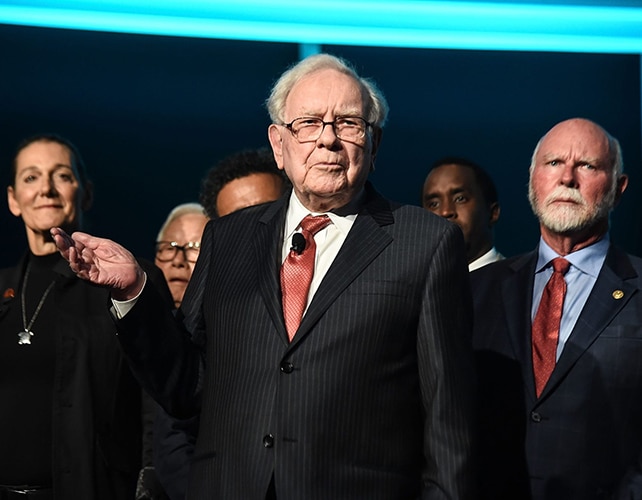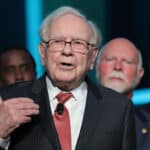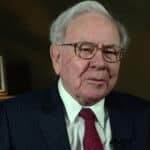One of the famous pieces of investment advice is “be fearful when others are greedy and be greedy when others are fearful.” It’s fitting this advice comes from the world’s most famous investor, Warren Buffett, who first set out a version of it in a 1968 letter to shareholders.
His words are more timely than ever as the stock market reaches new heights and as everyone appears to be getting in on the action — except Buffett himself. Has the Oracle of Omaha grown fearful? Even as corporate valuations soar, Buffett has never sat on more dollar bills.
His conglomerate, Berkshire Hathaway, currently holds $325 billion in cash and equivalents, according to the firm’s quarterly financial statements. Over $288 billion of that pile is in U.S. Treasury Bills, the textbook example of investing at the so-called “risk-free” rate.
At the same time, the Oracle has been active in the market — in the form of a selling spree. During each of the last eight quarters, CNN reports that Berkshire has offloaded more stock than it’s bought, most notably selling off two of its top-three largest holdings— Apple and Bank of America.
Apple made up $178 billion of Berkshire’s portfolio at the end of last year, roughly five times the size of the conglomerate’s next largest position. While the iPhone maker, which Buffett has long praised, remains Berkshire’s top holding, the conglomerate has trimmed its stake by over half.
As of Sept. 30, it holds $69.9 billion worth of Apple shares. Realizing gains on those investments drove Berkshires’ quarterly net earnings up to $26.25 billion, or $18,272 per Class A share. The conglomerate’s stock has easily outpaced the broader market, more than doubling the return of the S&P 500 over the last three years.
Will Buffett make a big acquisition? Beyond immense profit taking, however, is the Oracle also getting out of the market because he believes it is overheating? The famed “Buffett indicator,” which compares the value of all listed stocks to the size of the U.S economy, suggests that’s possible.
Using the Wilshire 5000 Index as a proxy, The Wall Street Journal calculated that number to be roughly 200%, indicating the market is more stretched than at the peak of the tech bubble.
In the event of a market downturn, Berkshire would certainly have the funds to capitalize on opportunities. The Journal noted Buffett’s company could fork over a check for all but 25 or so of America’s most-valuable listed corporations, including names like Walt Disney, Goldman Sachs, Pfizer, General Electric, and AT&T.
While Buffett may be sitting out the stock rally due to inflated valuations, it’s also possible he is just waiting. As the Journal reported, at the 2023 annual meeting, he said “What we’d really like to do is buy great businesses. If we could buy a company for $50 billion or $75 billion, $100 billion, we could do it.”
There are simply not many companies of that size in play, so that could also explain why Berkshire has not been spending.
The Journal noted the company’s cash hoard is likely a reflection of how its current situation prevents it from making major moves. Berkshire would currently have to pay a premium of 20% or more in any sort of takeover.
Meanwhile, the company’s immense size has made it increasingly difficult for Berkshire to replicate its tried-and-true model of deploying its profits to continuously beat the market. At last year’s annual meeting, Buffett also suggested he would keep more cash on hand to prepare for higher capital gains taxes. The tax increases he believed were imminent, however, might not materialize anytime soon with Trump returning for a second term in the Oval Office.
This article was first published in Fortune and was provided by Reuters.







